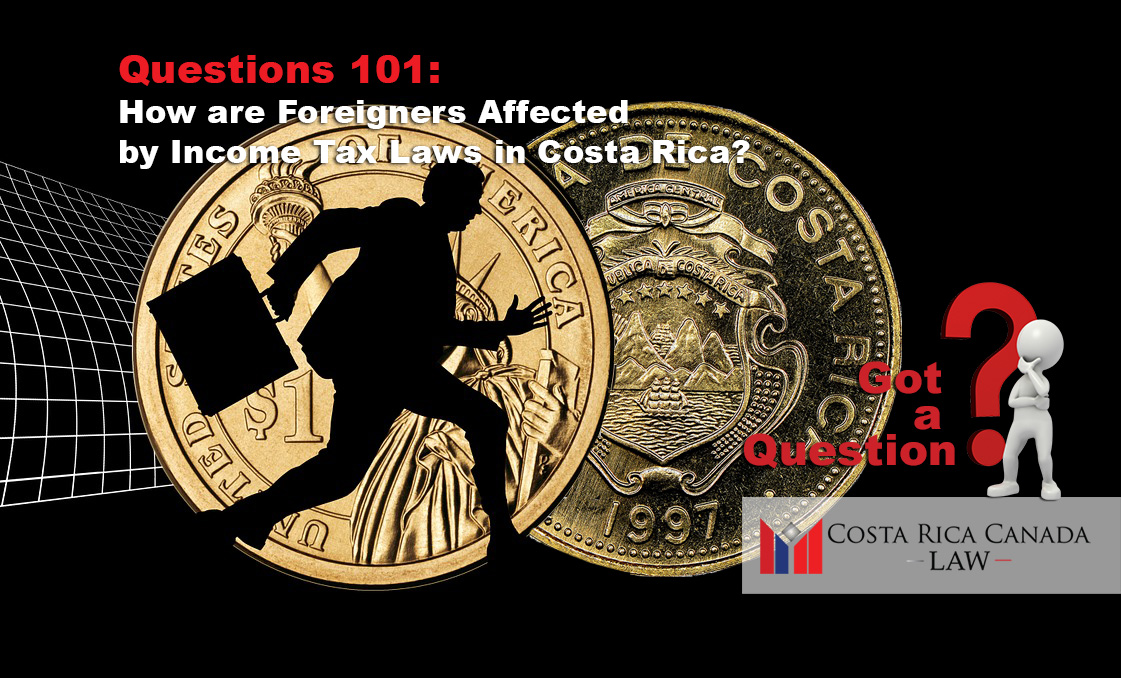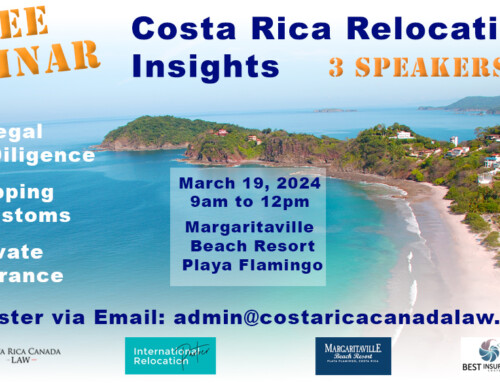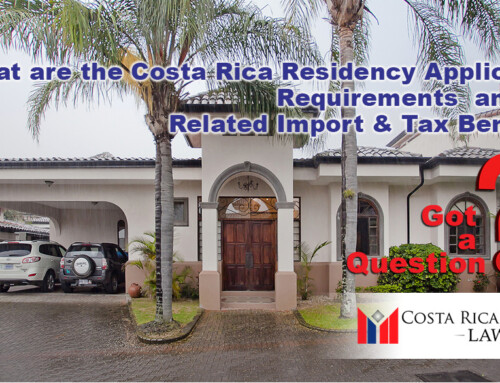How are Foreigners Affected by the Income Tax Laws in Costa Rica?
Territorial Income Tax
As a foreigner living in Costa Rica and meeting the Immigration Law requirements to work, the Income Tax Laws only apply to income, whether it be income derived from salary, wages, investment, or other income sources, earned within the territory of the Republic of Costa Rica. World income earned outside of Costa Rica is not taxed under the Income Tax Laws of Costa Rica.
The Application of Income Tax Laws
The Income Tax Laws are applied to income earned in Costa Rica on a “sliding scale” basis, varying between approximately ten to thirty percent of net income. The usual tax deductions related to the cost of doing business, either personally, or corporately, are applied to the gross income amount to determine the net taxable income amount. The Tax Year-end for both persons and Costa Rica companies is December 31st, with the required Tax Declaration and payment of any taxes owing required by the following March 15th.
Income Tax Implications in Foreign Jurisdictions
The requirement to declare income earned in Costa Rica in a foreigner’s home country jurisdiction varies significantly between those jurisdictions.
United States Citizens are required to declare and pay income tax to the IRS, on their world income. If the business activity in which the foreigner is engaged in Costa Rica is an active income earning enterprise, that is it has employees and/or is engaged in an active production activity, there is currently an income tax exemption for approximately the first $110,000.00 U.S. of annual income. If the income earned is passive income, such as investment, or property rental income, the total amount of income earned is subject to taxation in the U.S., subject to any tax regulations which may respect the income tax paid in Costa Rica as an off-set to the tax liability.
Canadians are likewise required to pay income tax to Revenue Canada on their world income. The option for Canadians living outside of Canada for at least 183 days per year and essentially cutting all professional financial ties with Canada, is to declare Non-Residency Status for Income Tax purposes with Revenue Canada. This is a complicated process and should only be undertaken with the professional advice received from a Canadian Tax Accountant, or Tax Lawyer. Having achieved this tax status, income earned in Costa Rica, whether from active, or passive income sources, is not taxable in Canada.
My Opinion
My advice is that this article be used as a guide only to approaching the income tax issues surrounding income earned in Costa Rica, particularly as it may relate to a foreigner’s income tax liability in their home country’s jurisdiction. Tax advice from a professional tax adviser should be sought in all cases as to the applicability of the foreigner’s home country Income Tax Laws, to any given personal, or corporate circumstance.






